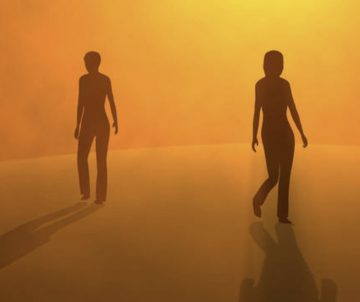Chris Fields at the Institute for Art and Ideas:
 The idea that we have evolved to see reality ‘as it is’ is commonplace. While it might seem irresponsible, in this age of ‘fake news’ and ubiquitous political and commercial propaganda, to argue that we are not evolved to see reality as it is, I believe it’s worth doing, not least for what it reveals about our notions of ‘reality’ and ‘evolution’.
The idea that we have evolved to see reality ‘as it is’ is commonplace. While it might seem irresponsible, in this age of ‘fake news’ and ubiquitous political and commercial propaganda, to argue that we are not evolved to see reality as it is, I believe it’s worth doing, not least for what it reveals about our notions of ‘reality’ and ‘evolution’.
Pioneering vision scientist David Marr, for example, explained in his 1982 book Vision that ‘one interesting aspect of the evolution of visual systems is the gradual movement toward the difficult task of representing progressively more objective aspects of the visual world’. Almost every textbook agrees. Seeing the world as it is, objectively, is widely assumed to make organisms better able to find food, avoid predators or other dangers, fend off rivals, and mate successfully; it is, in other words, widely assumed to render organisms better adapted to their environments.
Evolution favors better-adapted organisms, so evolution should favor an ability to see the world objectively. What, after all, could be the advantage in not seeing – in general, sensing – the world correctly? Evolution must make organisms progressively better at sensing their worlds. How could anyone disagree?
More here.
